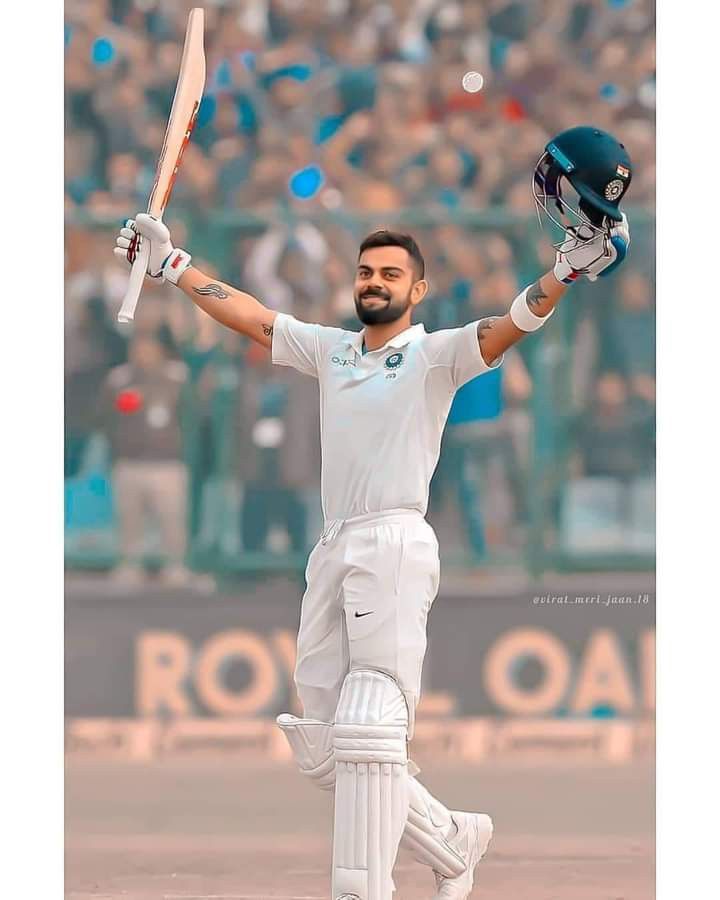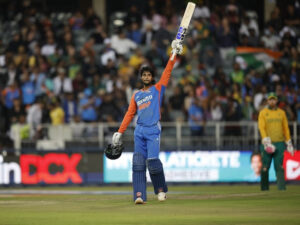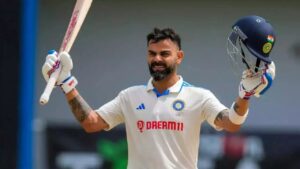
A Fun Little Bengaluru Get-Together: Kohli and Sarfaraz Spark a Social Media Storm
In the cricketing world, India vs. Pakistan is more than just a match — it’s a battle of epic proportions, with emotions running high on both sides of the border. So when two key players from either side, Virat Kohli and Sarfaraz Ahmed, were spotted in Bengaluru enjoying what appeared to be a casual meet-up, fans from both countries were divided. Some hailed it as a refreshing display of camaraderie, while others questioned the timing, intention, and appropriateness of such an encounter.
The Encounter
Bengaluru, a city known for its cosmopolitan charm, seemed like an unlikely backdrop for this rendezvous. Kohli, fresh off his blistering performances in the ICC World Cup 2024, and Sarfaraz Ahmed, the enigmatic Pakistani wicketkeeper-batsman, were seen enjoying a cozy evening in one of the city’s upscale cafés. The two players appeared relaxed, chatting like old friends, seemingly oblivious to the magnitude of their casual outing.
Photos and videos of the evening quickly flooded social media, where cricket fans are always eager to pounce on anything that even remotely hints at Indo-Pak relations. Some fans were delighted to see their heroes transcending the bitter rivalry, but others saw it as a betrayal, especially given the tense history between the two cricketing giants.
A Diplomatic Scandal in the Making?
For Kohli, who has been the face of Indian cricket for over a decade, the optics of hanging out with a key Pakistani player during the World Cup in India seemed to be bad PR. Nationalist segments of the Indian fanbase were quick to voice their displeasure, accusing Kohli of being too soft on the “enemy.” As for Sarfaraz, his presence with Kohli also led to some raised eyebrows in Pakistan, where public sentiment towards India remains skeptical, particularly during high-profile sporting events.
The critics didn’t hold back. On Twitter, many slammed Kohli for being “unpatriotic” and “insensitive,” especially at a time when Indian soldiers continue to face cross-border tensions. Some went as far as to claim that Kohli’s casual camaraderie could reflect a soft stance toward Pakistan, drawing fire from certain political groups that thrive on nationalist rhetoric.
On the Pakistani side, Sarfaraz was criticized for appearing too friendly with Kohli, with some accusing him of betraying Pakistan’s cricketing honor. There was even speculation that Sarfaraz’s behavior off the field hinted at a lack of seriousness about Pakistan’s preparation for upcoming matches. Such is the depth of emotion surrounding these two players that even a dinner date sparked a miniature diplomatic storm.
Sportsmanship vs. National Pride
The deeper question this meeting raises is whether fans have forgotten what sportsmanship really means. For centuries, sport has been seen as a means of breaking barriers, fostering friendship, and building relationships. Kohli and Sarfaraz’s meeting could be viewed as a symbol of mutual respect and shared experiences, something athletes across the world have done for years.
However, the complex political landscape between India and Pakistan often doesn’t allow for such easy narratives. For many fans, sports aren’t just about talent and skill on the field — they carry the weight of national identity. And when it comes to India-Pakistan, the rivalry extends far beyond cricket. Whether it’s the scars of partition or decades of political and military friction, there are wounds that no amount of on-field camaraderie can easily heal.
Kohli’s Stance: A Pattern of Breaking Boundaries?
Kohli, of course, is no stranger to pushing boundaries. He has publicly supported Pakistani cricketers in the past, from lauding Mohammad Amir’s comeback to offering words of encouragement to Pakistan after their losses. To Kohli’s credit, he has consistently maintained that the spirit of cricket transcends borders. But this approach, which in some quarters makes him the poster child for sports diplomacy, also makes him a soft target for those who believe he should take a more aggressive stance against Pakistan, at least in the public eye.
In contrast, Sarfaraz has often kept a lower profile, but his encounter with Kohli shows a willingness to bridge divides — something that not all in Pakistan’s cricketing circle are ready to embrace. His critics argue that, given the stakes, being friendly with the Indian captain might be a distraction, even a political faux pas, especially in a World Cup year. In their eyes, this meeting was an ill-timed and unnecessary gesture.
The Verdict: Can Athletes Be Friends?
Perhaps the most important takeaway from this Bengaluru get-together is that athletes, at the end of the day, are humans too. Kohli and Sarfaraz have spent years facing off against each other on the field, enduring the same pressures, expectations, and criticisms. Why shouldn’t they share a friendly meal without having to answer for it?
But to expect fans, especially from India and Pakistan, to accept such a notion without debate is naive. The boundaries between sportsmanship, national pride, and political tension blur when it comes to these two nations. Kohli and Sarfaraz might be seen as ambassadors of peace by some, but to others, their behavior comes across as politically tone-deaf.
In the end, the controversy surrounding this seemingly innocuous meet-up in Bengaluru proves once again that in the world of India-Pakistan cricket, even a simple dinner between two players can carry the weight of a nation’s expectations — for better or for worse.






